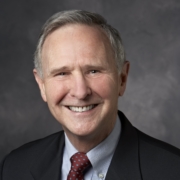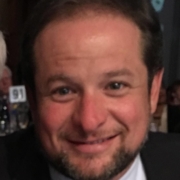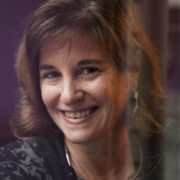Day one of the CIES symposium just ended. Before we start day two, I thought it important to revisit a remark Tom Popkewitz made on this podcast a few months ago. Tom argued that educational metrics, and the comparison that comes with them, have always been about inscribing in children a certain moral order. I’ve been surprised that this type of thinking has been relatively absent in the conversations today.
What will tomorrow bring? Stay tuned!
Will Brehm 0:34
I think it’s good, though, because this show has dealt a lot with comparative education scholars, and I don’t think the field itself steps back and really tries to critique and understand what it is to even compare. And I think the best example -you know, when you said that the comparison we do is looking at what is normal and then finding instances where people don’t meet that normal. And I just think of PISA -this international test that does this on a global scale.
Tom Popkewitz 1:10
I mean, and it is sort of interesting, because I’ve been working a lot with Europeans on PISA. It’s very prominent. And to understand PISA, you have to understand, first of all, what I call the outcome of your school subjects. That is, in western models of curriculum -and particularly, I’m talking more from the US because I’m more familiar. But I do a lot of work with European so I could see it in Portugal, I see it in France, I see it in Sweden, and so on. There’s a particular way in which curriculum is formed. It’s formed through psychological models. Those models have some image about who the child should be and how that child develops and grows. Those models become the ways in which you interpret physics, mathematics, and bring it into the school. It’s sort of a magical transformation. That magical transformation has to do with -you have to take things that people do in physics, mathematics, music, art, and somehow move it. We have buildings on my campus. It somehow has to sort of travel from those buildings into my buildings, and then get translated into ways of talking to kids.
Now, the alchemy has to happen in schools because kids are not mathematicians, they’re not physicists. But what’s interesting and important is how these models emerge. And when you look at them historically, you realize they didn’t emerge to teach kids physics or mathematics. They had to do with this idea of how do you make the citizen? How do you make a moral child? And so, the example I gave was music education. Music education was brought into the Boston schools in the late 1800’s by Horace Mann. Horace Mann was the secretary of the Massachusetts Board of Education. And many American historians think he was instrumental in the formation of the modern school. That kind of hero worship isn’t what I’m getting at. What was important is, he went to Prussia. And he wasn’t interested in certain elements but he was interested in music education, brought it into the schools. Why music education? Because he was interested with the Irish population in Boston. This was a book actually written by Ruth Gustafson, it was her dissertation that she wrote up where she looked at the way to music education. Why music education? Well, it was thought that if the Irish girls in the high school would sing and join choral groups, that would help their health because the breathing and the exercise was good for their health. Then later, they introduced music appreciation. Why music appreciation? It was music that you were supposed to be able to understand your sense of collective belonging. Not to Irish, but as an American.
It also frowned upon learning jazz. Why jazz? Jazz was the music of African Americans. It isn’t actually only that, but it was perceived that that was thought dangerous to the mind. And so, it was frowned upon, children learning jazz. In fact, Carl Seashore, who was at the University of Iowa, did research where he had high school -this was in the 20’s- look at and listen to classical music, and then listen to jazz. And he recorded their facial expression. And you know what? And these were all white men. The people who listened to classical music had a sense of joy and satisfaction. The people who listen to jazz -this is his interpretation of the photographs- they tended to frown and be disoriented and all sorts of things that would enter into and mentally make them unstable. Okay. So, why am I telling this story? Because -and I could do the same thing if you want in mathematics education, I could do the same thing in art education, I could do the same thing in science education. Because there’s a whole group of people that are working on, historically, where these places come from? Where these disciplines come from. They are not to learn science. They’re not to learn math. They’re not to learn art. They’re to develop a particular kind of person. And usually that person is to counter what is considered moral disorders. And they’re built upon psychologies.
If you look at the psychologies of education -cognitive psychology, learning psychology, and so on- these are not psychologies developed to understand what physics is. They are psychologies to understand how you govern who the child is, and who the child becomes. So, why is that important? PISA builds itself on these models and calls it learning science, practical knowledge of science, practical knowledge of mathematics, practical knowledge of literacy. It’s not practical knowledge of any of that. It’s how you make a particular kind of person. And then when you look more carefully at the PISA, you realize that it’s not only are they talking about children learning these subject matters -that is the alchemy- but they’re also talking about the social and cultural context that they learn. That is family background, community background. And you realize this has very little to do with learning to be a scientist, learning to be a mathematician, learning to be an artist. It has to do with a particular kind of inscription of a moral order. And then it’s given a universality through the use of numbers. There’s wonderful work done by Ted Porter. It’s a book called Trust in Numbers, but even beyond that. And also Blum on France and so on, where they talk about how numbers become a way of telling the truth about people, about society because it seemed democratic. The numbers aren’t biased, the numbers seem to be the same for everyone, and so on. Yet the numbers themselves are built upon particular kind of cultural ways of thinking about people that become obscured because you begin to think of the numbers as a way of telling truth.
Will Brehm 7:39
Okay, that’s it for today. What will tomorrow bring? Well, stay tuned.
Coming soon!
Coming Soon!









